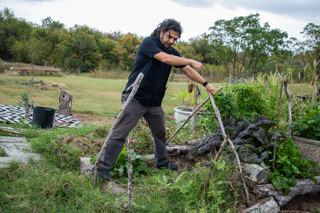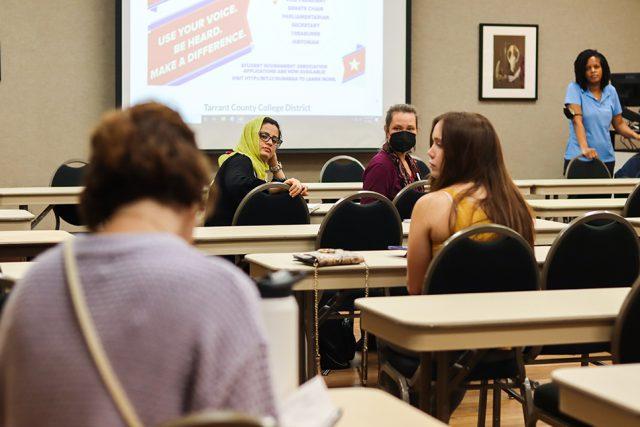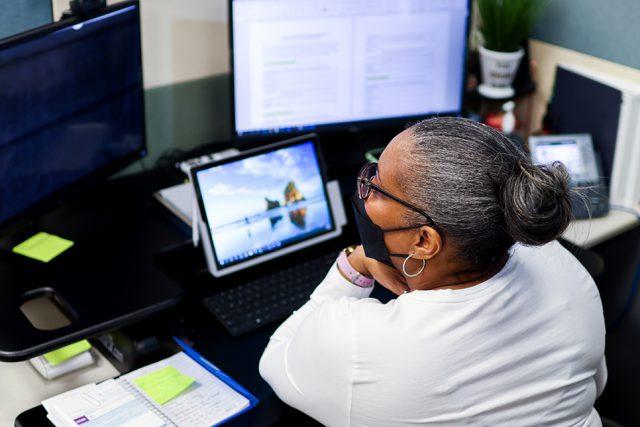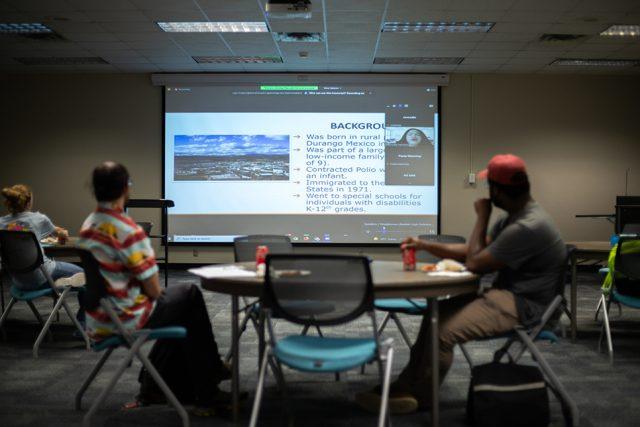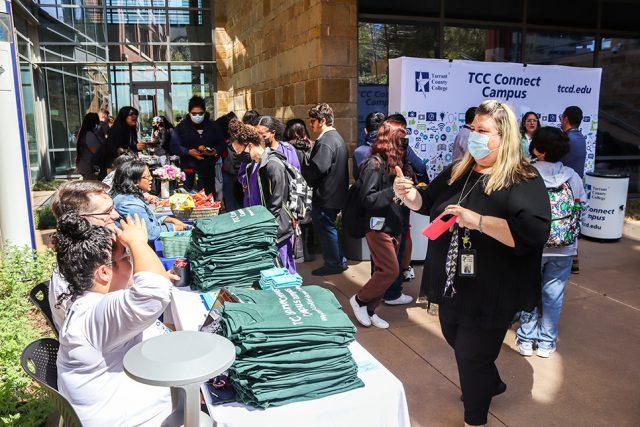Rabbia molai
campus editor
rabbia.molai@my.tccd.edu
The ninth and holiest month of the Islamic calendar is here, and Muslims worldwide are fasting every day from sunrise to sunset in celebration.
For many Muslims, Ramadan is the most important time of the year regarding their faith and spirituality. It is a time to strengthen the bond they have with their religion, give back to their communities and above all, be grateful for all they have.
The history of the holy month begins in 600 A.D. when the first verses of the Quran — the Islamic holy book — were released to Prophet Muhammad, peace be upon him. Over time, the month began to include traditions such as fasting, prayers and charity.
One of the five pillars of Islam is the practice of giving to those who are less fortunate, and though many Muslims practice this year-round, Ramadan is the time to go the extra mile.
It is said that by depriving oneself of the luxuries that can seem so common in day-to-day life, such as food and water, they become more appreciative of everything they have been given. Throughout the month, Muslims begin their days with Suhoor, the meal before sunrise, and end their days with Iftar, the meal after sunset.
Throughout the day, they do not eat or drink anything, and they also try to abstain from committing any other sins and focus on giving as much time to practicing their religion as possible. It is said that the quenching of a long day’s hunger by the consumption of one meal is representative of the fleeting pleasures of the world.
Although fasting is significant to Muslims during this month, there are some exemptions. People with diabetes, women who are menstruating, pregnant or breastfeeding are all exempt from fasting. However, not being able to fast doesn’t mean they don’t get to take part in other traditions.
One would think that a month of fasting wouldn’t be so food-centric, but it seems the longer people have to think about what they’d like to eat, the more delicious the Iftar creations become. From spiced fruit salads to potato fritters and creamy desserts, Iftar is every foodie’s dream.
This Ramadan seems especially important considering it’s the first back in a moderately post-COVID world. With the last two years of social distancing and no group prayers or community Iftars, people are elated to be able to celebrate full out this year.
“I’m excited for Ramadan this year,” NE student Shazia Khan said. “I feel like it will be more meaningful to me than last year, which was a muted experience.”
Throughout the month, there are moments at mosques or during meal times that bring a sense of closeness to Muslims in their congregations.
“My favorite part of Ramadan is the sense of community you get when visiting the masjid on a daily basis,” NE student Ahsan Khalid said.
The process of waking up before sunrise to eat and then immediately after breaking your fast at sunset to go pray can be difficult. However, it seems that throughout the holy month, there is so much joy in the mosques that people feel more inclined to want to fulfill their five daily prayers together.
“I really enjoy going to the masjid for early morning Fajr prayer, and Ramadan is the time I can build that habit back,” SE student Yassir Asif said. “My favorite part is the coming together of the community and congregating for prayer.”
Although there are moments of celebration throughout the month, the main festivities come at the end. Once the last fast has been broken, and the moon has been seen, it is officially time for Eid.
Eid is a three-day holiday celebrating all the efforts and hardships that may have been overcome throughout the month. Traditions during the three days include fancy clothes, food, and of course, giving back as much as a person can.
“I’m most looking forward to getting mehndi (henna tattoos) on Eid and dressing up,” Khan said.
For many, the night before Eid is known as Chand Raat, or the night of the moon. Since Muslims follow the lunar calendar to know when Eid is, the night the moon is spotted is when the official celebrations can begin. The night is celebrated with henna parties, the giving of charity and lots of food.
Ramadan represents many things for the Muslim community. A time to repent for past sins, a time to get closer to your faith and even a time to celebrate with friends and family. Most importantly though, Ramadan represents a fresh start.
“This is the time during the year we can come closer to our religion,” Khalid said. “I feel like, during this month, we can cleanse ourselves and focus on what’s important. We can have a clean slate.”
















